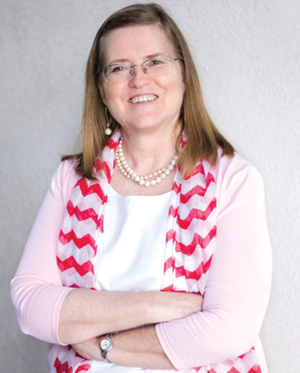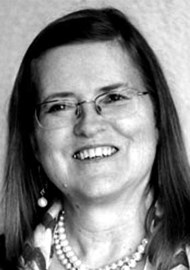Jackie Clark, PhD, is a clinical audiologist, professor of audiology, and researcher. She is also the new President of the American Academy of Audiology (AAA). While on an annual working trip to South Africa, Jackie answered a few questions about her teaching, her clinical work, and what she is hoping to accomplish while leading the AAA.
When did you begin your work as President of the AAA?
I am in to my fifth year on the Board of Directors of the Academy, and began my tenure as President on 1 October 2017.
What are your ambitions for your tenure?
If you study ages of organisations, you can see that there have been a number of symptoms that the Academy is experiencing that places it in its mid-adolescence. There is still some youthful energy, but at times the activities had appeared to lack focus and communication was not effective. Consequently, we have been working diligently on effective and consistent messaging to our members to demonstrate the value of membership and a unified voice. Instead of perseverating on the negative aspects of the, sometimes scary, changes impacting our profession, we are focusing on the abundance of exciting innovation that will place the profession in easier grasp of many more patients to serve. Over the past four years, the board has conscientiously connected on a regular basis with various sister organisations. Though we all understand each organisation has its own mission, there are great opportunities to embrace and articulate our commonalities with policy makers and the general public. All in all, my ambitions are to keep the Academy on the path we have worked hard to get to, and ensure the Academy stays agile and responsive to the needs of our members and those we serve.
“We are focusing on the abundance of exciting innovation that will place the profession in easier grasp of many more patients to serve.”
Are there any challenges you are looking forward to tackling?
I often remind people that the natural pearl grows larger and more valuable due to the irritation of a grain of sand or other irritation intruding into the shell. Challenges are nothing more than opportunities to learn, grow and enjoy our life experiences. It’s an exciting time we are finding ourselves in. We have a multitude of opportunities to grow and better ourselves and our profession.
What is your day-to-day work like?
I am a Clinical Professor at the University of Texas at Dallas. My primary responsibilities are to teach in both a didactic and formal manner as a classroom instructor, as well as through clinical experiences as a preceptor in practicum. In addition, I have my own active research projects that include speech recognition performance in the presence of noise; validation of teleaudiology equipment and protocols; validation of technology use in low, middle and high income countries; and investigating demographic profiles in under-resourced regions. I am licensed to provide clinical service in Texas and Louisiana and, consequently, I also see clinical patients at the Callier Center, which is where I office. That’s just a brief description of the major activities that keep me busy at UT Dallas.
“I often remind people that the natural pearl grows larger and more valuable due to the irritation of a grain of sand or other irritation intruding into the shell.”
I still see patients and have opportunities of using the Ida Tools. I use the Box in a format that I have modified for myself. It is very useful to use with those patients who feel overwhelmed with all of the information from their test results and trying to assimilate or prioritise their actions.
What role does person-centred care play in your work?
I am a big believer in person-centred care. It absolutely has a place in my work as an instructor, preceptor and clinician! For me, the most important component of person-centred care is to carefully listen and observe the patient’s responses. I have heard some pretty incredible stories from my patients because they trust that I have the utmost respect for them and their perspectives. One of the most common greetings I receive from my patients is a hug. They understand that we are on this journey together and I am committed to ensuring that they achieve success in communicating in their communities. I have called some of my patients while I have been in South Africa. I just want to make sure that they know when the road is rocky, I’m there to listen.
Tell us about your work in South Africa.
This was my 20th year of travelling into Sub-Saharan Africa for outreach work.
I take a few of our UT Dallas AuD graduate students each year to work with Sub-Saharan African Audiologists who conduct outreach programmes. The students receive academic credit, and have a great deal of reading materials and lectures about working and providing services in low and middle-income countries. I feel fortunate that over the years, I have forged some lifelong friendships from the University of Witwatersrand (UW) and the University of Pretoria (UP) through collaborations of outreach, teaching, writing, and conducting research.
For this past ‘deployment’ I was accompanied by two of our AuD students: we worked for a week conducting hearing screenings and clearing obstructed ear canals in the rural area at a primary school, and completing diagnostic testing at local government clinics. When I am in Johannesburg, I provide some lectures at UW and UP as well as continuing professional development coursework; consult with faculty and students in their research projects; and engage in wonderful conversations and speculations about the changes we are globally experiencing in our profession.

Reprinted with the kind permission of the Ida Institute:
https://idainstitute.com/public_awareness/news/blog/
show/an-interview-with-aaa-president-jackie-clark/





